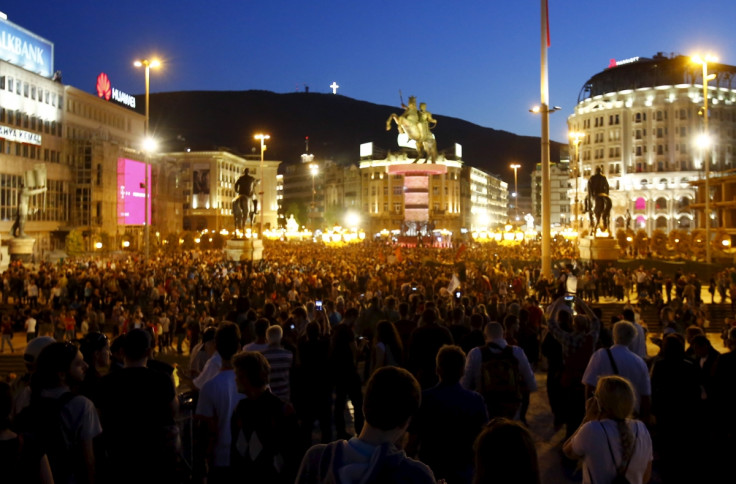Macedonia: Parliament cancels elections scheduled to be held on 5 June

Macedonian's parliament called off the national elections scheduled for 5 June after a Constitutional court called to halt all election related activities on 18 May. The court said that the dissolution of parliament was unconstitutional and hence sought that the elections be delayed. No new date has been set for the polls as yet.
Political turmoil began in the former Yugoslav republic in February 2015, when opposition leader Zoran Zarev had accused Prime Minister Nikola Gruevski and the intelligence chief of tapping phones of more than 20,000 people including journalists, judges and religious figures. Subsequently, there were numerous protests and the parliament was dissolved.
The controversy peaked in April, after 56 officials, who were accused of wire tapping, were pardoned by the President Gjorge Ivanov on 12 April. The prime minister – who stepped down in January this year – was among one of those pardoned by the president.
Protests ensued across capital Skopje as hundreds of Macedonians came out on the streets. The president's office was also ransacked by the protesters.
Three major political parties of the country chose to boycott the June elections and cited that the conditions in the country were not right to hold free and fair elections. VMRO-DPMNE, the ruling party of the former prime minister was the only party that was contesting the elections.
The EU Foreign Policy chief Federica Mogherini and its enlargement commissioner Johannes Hahn said in a joint statement, "This is a renewed opportunity for the country to address a number of serious issues at the heart of the prolonged political crisis."
The statement also added that "the April 12 pardons should be rescinded without delay to preserve the principle of accountability, counteract serious concerns about impunity and avoid selective justice. It is a fundamental democratic principle that all citizens should be equal before the law".
© Copyright IBTimes 2025. All rights reserved.



















